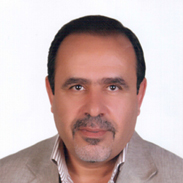Slow reform raises questions about Jordan’s stability
Jordan dodged “Arab spring” uprisings and remained a relatively safe haven in a turbulent region but the country’s lagging pace of political reforms poses a challenge to the kingdom’s domestic stability.
While authorities insist that the reform drive is carefully crafted to avert the type of upheaval that shook other Arab countries, analysts say the process maintained the political status quo, dashing hope for tangible change.
Jordan has endorsed new laws on election, decentralisation and political parties, amended the constitution and created a constitutional court, as well as anti-corruption and independent electoral commissions.
Also, a mechanism has been introduced under which King Abdullah II consults with parliament before naming prime ministers, a step he promised would lead to the legislature electing prime ministers as the monarch takes the backseat in running the daily affairs of state.
Analysts welcome some of the laws and reforms but say such steps failed to meet democratic expectations. They say the reforms were designed to gag Jordanian opposition, appease the West and reinforce authorities’ grip on power.
As Amman grapples with the economic, social and security effects of the war in Syria, which has led more than 600,000 refugees to flee to Jordan, officials argue that such implications bunker efforts to speed up and introduce more reforms.
To read more click here




